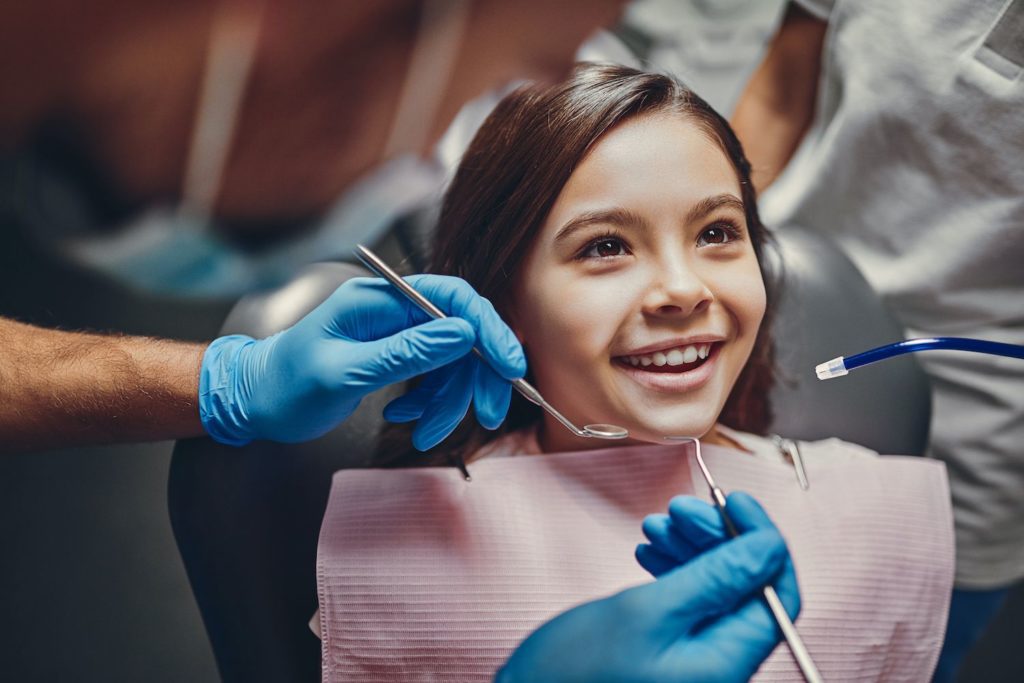Getting yourself to the dentist as an adult can already be a pain. But taking your child to the dentist may pose a unique challenge. Your child may be young enough that they don’t understand the importance of clean teeth and the long-term effects of their dental routine. Small children may also have anxiety about visiting the dentist, which may be difficult to negotiate with them.
Children’s teeth are not permanent and will fall out as they grow and develop. You may ask: is it even necessary for children to go to the dentist? The answer is yes! Children’s oral health is just as important as an adult’s. While it may be tough to get a child into a dental chair, it is vital for their teeth and overall health.

Develop Lifelong Habits
Children should first visit the dentist by the time they turn a year old or when their first tooth comes in. In these early appointments, dentists can give parents advice on keeping their children’s teeth as healthy as possible while they grow and develop. Many parents may not know how to properly care for and clean baby teeth. So a dental professional will walk them through this process.
Habits that are formed in childhood are more likely to last throughout adulthood. Taking your child to the dentist regularly impresses the importance of their oral health, which will have lifelong benefits. If a child is used to going to the dentist, they will probably have less anxiety about visiting the dentist as an adult.
Tooth Decay In Childhood Can Last a Lifetime
Regardless of whether tooth decay is in a baby tooth or a permanent tooth, it is still an infection. Without intervention, infections of any kind can spread. Even though baby teeth will fall out on their own, problems with decay can still affect their adult teeth. A cavity in a baby tooth can potentially spread into permanent adult teeth that have yet to break through the surface of their gums.
Their adult teeth are still developing and can be permanently changed due to decay. Untreated cavities can deform the shape and growth of their adult teeth as well as alter the color. Tooth decay can change teeth from white to yellow, brown, or even black, which will show on their permanent teeth.
Developmental Issues
Untreated cavities can cause pain even in baby teeth. If not treated, cavities can form abscesses around the infection, which could lead to tooth loss. In addition to pain and malformation of the teeth, cavities may create the need for future orthodontic or cosmetic work as the teeth change shape and shift.
Severe cases of tooth decay can actually advance into the jaw. This could potentially damage the growth and structure of your child’s developing bones.
Damage to the teeth and jaw may cause issues with eating and speaking, which can be preventable. A bad bite (how the upper teeth meet the lower teeth) and pain created by tooth decay may lead to speech problems and malnutrition if a child can’t eat or speak properly.
